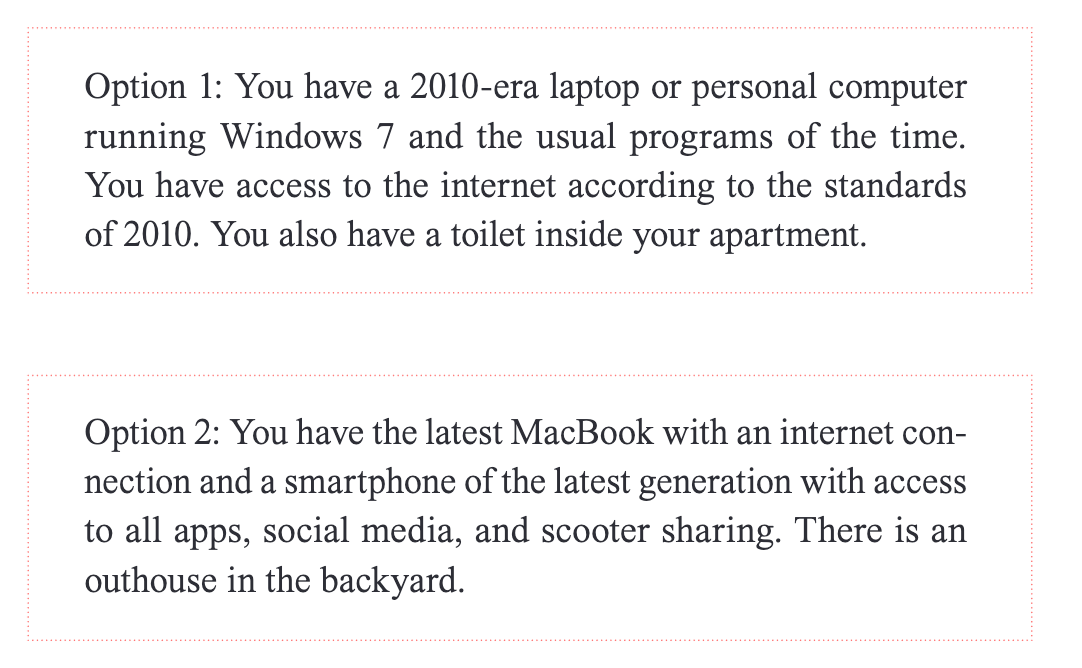So Julian Assange is out of prison, to much discussion and claims of victory on both sides. But that was over a week ago. Why are we still talking about it? Isn’t there some celebrity divorce we could be obsessing about instead?
Locally, my former Governor’s School colleague David Phillips has settled his case against the public school system that supposedly manages it.
That second one is unfortunately paywalled but the case is laid out at the nonprofit that paid his legal bills, the Alliance Defending Freedom.
Both sides likewise claim victory.
I have my own multi-part story about our last summer at Governor’s School in 2021, but that will be below the fold for paid subscribers.
I’ve been reading
lately. He has an unusual take on the recent round of table-flipping by the Supreme Court, Years When Decades Happen, namely that this Federalist Society-dominated court is in some ways correcting Executive Branch overreach in the wake of World War 2. Given how many documents I’ve watched recently about Cold War shenanigans, it’s an interesting perspective.1971 (which I wrote about just one month ago here)
etc, etc
I wonder what he’ll have to say about their latest coin flip in the opposite direction, granting Presidents (who are part of the Executive Branch) broad immunity for “official acts,” whatever that means.
On the Brink of Utopia
As promised, we return to this free online book from MIT Press.
chapter 1: Innovation Theater
But on a deeper level, in Vinsel and Russell’s view, the endless praise for the new and disruptive solution built on a new and disruptive technology undermines the foundation on which our prosperity and a good life for the majority of the world’s population rests: the maintenance of the existing systems and infrastructures that produced the golden age of innovation. Unfortunately, maintenance is not a winning topic for grandiose TED Talks.
Absolutely true. I happen to know a guy, Joel Leonard, who makes his living preaching about the maintenance crisis, and trying to build vocational pipelines of skilled technicians. But he is one guy. It’s not a crowded field.
Let’s zoom out a little further. I was happy to learn that Leslie Berlin convened a group to try and objectively measure the impact of technological innovations. Here’s their list, reproduced from the book.
It’s a fine list. But how did they arrive at this specific ranking? They voted.
This seems important to me because democracy is not on their list. Is democracy a technology? I say it is. But even if we stick to their definition of innovations as concrete things (cement is #37), what about voting machines? secret ballots? a jury of your peers? There is not one social technology on Berlin’s list. If we want to solve social problems, we need social technologies.
Another free online book I’m reading right now (which I’ll get to, eventually) is Plurality: the Future of Collaborative Technology and Democracy. Those authors understand that social and technical innovations are loopy. They interact, in ways more complicated than technology → society.
To be fair, our current Brink authors raise that question,
Do writing and democracy also count as innovations, and do they belong on this list?
but they don’t answer it (at least not in chapter 1), and they also seem to want to treat social innovations as separate from technological innovations. Which I can see, sort of, as a convenient category for cognition. It’s at least theoretically possible for one person to make a new thing, where by definition, social innovations have to involve multiple people. But imagine a technology whose purpose is to enable consensus? Plurality is in part about a family of such technologies.
More is Not Better
But back to On the Brink. These are economists who want numbers: productivity increases, dollars spent on research, papers produced. All of those are flawed measures:
how many dollars are wasted?
how many papers are frauds?
but they are at least simply countable; we can tell whether they go up or down. Quality is harder. Quality involves values and opinions.
So the next chapter is about their preferred way to rank and prioritize our efforts using Abraham Maslow’s hierarchy of needs, something I occasionally talk about with my neuro students. Tune in for that next week.
Keep reading with a 7-day free trial
Subscribe to Doctor Eclectic to keep reading this post and get 7 days of free access to the full post archives.




